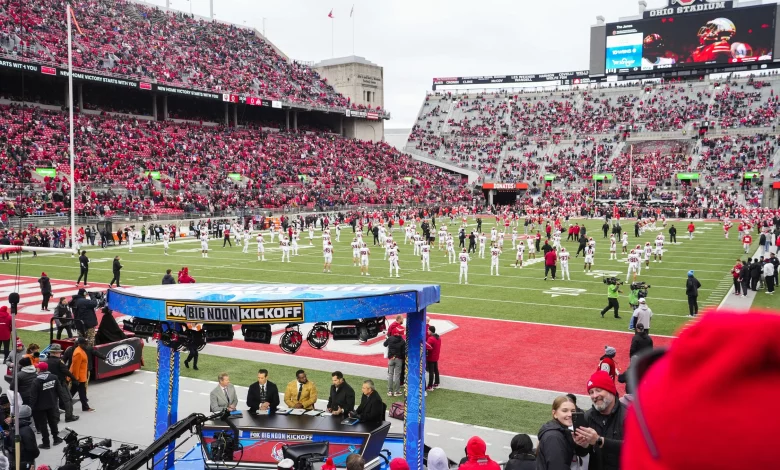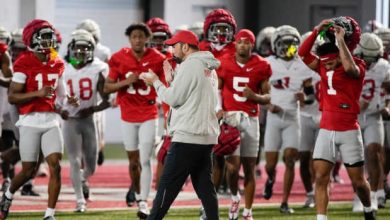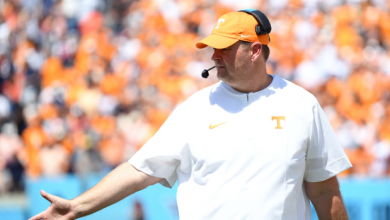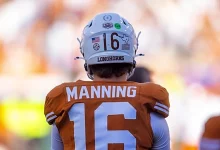An Ohio state representative has introduced a bill aiming to make it illegal for Ohio State football to play home games before noon.

In a move that has stirred both excitement and controversy, an Ohio state representative has introduced a bill that could reshape the landscape of college football in the state. The proposed bill, which aims to make it illegal for Ohio State football to play home games before noon, is a bold attempt to address concerns over fan experience, student-athlete welfare, and the long-standing tradition of game times at Ohio State University (OSU). As a state with an incredibly passionate fanbase and a football program that has been a perennial powerhouse, this bill is drawing attention not just from Ohioans, but from the broader college football community.
While at first glance, a bill regulating the time of day for football games might seem trivial, there are deeper layers to the issue that involve broader conversations about the commercialization of college athletics, the physical demands placed on players, and the impact on fans. This proposed law would have far-reaching consequences not only for Ohio State, but for the culture of college football in general. In this article, we will dive into the specifics of the bill, the motivations behind its introduction, the potential implications, and the various viewpoints on this controversial piece of legislation.
The Proposed Bill: An Overview
The bill, introduced by Ohio state representative Matt Smith, would prohibit Ohio State football from hosting any home games that start before 12:00 PM. The law would apply only to regular season home games at Ohio Stadium, the iconic “Horseshoe” in Columbus. While the bill’s provisions are narrowly targeted, its implications are far-reaching, as Ohio State is one of the most storied programs in college football.
The bill would give the Ohio State University athletic department and the Big Ten Conference the power to reschedule games that would otherwise begin at noon to later in the day. While the bill specifically targets Ohio State, it also seeks to apply the same standard to other programs within the state, with the potential for other schools in the region to adopt similar practices.
At the heart of the bill is the belief that noon kickoffs are harmful to the overall fan experience, particularly for local supporters who have to travel long distances to attend games. As it stands, noon games have become a regular fixture for college football schedules, especially for powerhouses like Ohio State, which are often featured in early television slots due to the high level of interest in their games. But for many fans, the early start times create a variety of challenges, from traffic and tailgating issues to limited time for pre-game festivities.
The bill’s proponent, Rep. Smith, argues that this new law will lead to a better experience for fans, ensuring they have enough time to tailgate, enjoy the atmosphere of a Saturday in Columbus, and arrive at the stadium without rushing. Additionally, Smith points to the welfare of the student-athletes, who often face grueling schedules that start as early as 6:00 AM on game day. The law would aim to alleviate some of the physical toll on players by moving games to later times, allowing for more preparation and rest.
The Context: Why Noon Kickoffs Are a Concern
Noon kickoffs have become a mainstay in college football for various reasons, most notably due to the increasing power of television networks. The early time slot is seen as an ideal opportunity to feature a marquee matchup, with ESPN, Fox, and other major sports networks looking to capture the attention of college football fans across the country. Television deals have become one of the primary driving forces in the sport, with networks paying top dollar for the rights to broadcast games at prime times, including those held early in the day.
For Ohio State, noon games are a frequent occurrence, particularly because the program is one of the most visible and successful teams in college football. The Buckeyes are often a top-ranked team, and networks are eager to showcase their games to a national audience. As a result, many Ohio State home games are scheduled for noon kickoffs, which can create difficulties for local fans, particularly those traveling from out of town. Tailgating is a beloved tradition for Buckeyes fans, but noon games severely limit the time available for fans to engage in this social and cultural event.
From the student-athletes’ perspective, playing early in the day can also be a challenge. Game day for a college football player is typically a long and taxing experience. Early morning meetings, media obligations, and pre-game warmups are part of a rigorous schedule that can leave players physically drained even before they step onto the field. By moving games to later times, the bill’s proponents believe that athletes will have more time to rest, hydrate, and mentally prepare for the game.
Additionally, Rep. Smith has pointed out that the early start times place undue stress on players’ academic schedules. College football players are students first, and the demands of balancing academics with athletics are already high. A noon kickoff requires players to sacrifice time for studying, recovery, and rest, leading to potential burnout.
The Fan Experience: A Deeper Look
One of the key reasons behind the proposed bill is the impact of early kickoffs on the fan experience. Ohio State has one of the most passionate and dedicated fanbases in the country, and home games at Ohio Stadium are an event in themselves. Fans travel from all over the state, and even from out of state, to attend games, making it a day-long affair. For many, this means arriving early to tailgate, socializing with friends and fellow supporters, and taking in the excitement of the pre-game atmosphere.
But noon games severely limit this experience. Fans may be forced to rush to the stadium in the early hours of the morning, which makes it harder for them to enjoy the pre-game festivities. Many fans also argue that the early start time reduces the overall enjoyment of the day. Tailgating, which can begin hours before the game, is an integral part of the college football experience, but it’s difficult to have a full, enjoyable tailgate when the game kicks off so early.
Moreover, the fact that Ohio State is a team that garners national attention means that the timing of their games often impacts the broader college football landscape. Games played at noon are often featured in the early television slots, meaning the matchup is viewed by fans across the country. While the scheduling of games is often out of Ohio State’s control, fans are becoming increasingly vocal about the negative effects these early start times have on their enjoyment of the sport.
For families and local businesses, noon games can also be an inconvenience. Tailgating parties and pre-game activities often have to start earlier, which can disrupt family schedules. Local bars, restaurants, and vendors that cater to the game-day crowd also experience less business when games start so early, limiting their opportunities to capitalize on the weekend’s excitement.
The Pushback: Opposition to the Bill
While the bill has garnered significant attention and support from those who want to improve the fan experience and players’ welfare, it has not been without its critics. Opponents of the bill argue that the proposed law interferes with the autonomy of Ohio State University and its athletic department. The university, which is part of the Big Ten Conference, has historically had little influence over the scheduling of its games, as most of the decisions are made by the conference and television networks.
Critics also point out that a move to ban noon kickoffs could have unintended consequences. For example, if Ohio State’s home games were moved to later in the day, it could lead to conflicts with other teams’ schedules, particularly those within the Big Ten. With several teams in the conference often scheduled for afternoon or evening games, the idea of rescheduling Ohio State games could lead to a domino effect that disrupts the entire league’s calendar.
Others argue that the bill may not actually solve the problems it purports to address. While it’s true that noon kickoffs can be difficult for fans and players, there are other solutions to these issues that do not involve a sweeping legislative ban. For example, Ohio State could work more closely with television networks to ensure that their games are scheduled at more fan-friendly times. Additionally, making changes to game day protocols—such as adjusting the start times for player warmups and media availability—could help alleviate some of the stress on athletes.
The Broader Impact on College Football
Ohio State’s football program has long been a leader in the college football world, and any changes it makes can have ripple effects throughout the sport. If the bill is successful in changing the scheduling structure for the Buckeyes, it could set a precedent for other teams to follow suit. Schools with large fanbases, like Alabama, Michigan, and Penn State, could be encouraged to push for similar legislation in their states to protect their fan experience.
Moreover, the bill highlights the growing tension between the commercialization of college athletics and the desire to maintain the traditions and atmosphere that make college football so unique. As television deals continue to drive the sport, the balance between fan experience, player welfare, and the business of football will only become more complicated.









